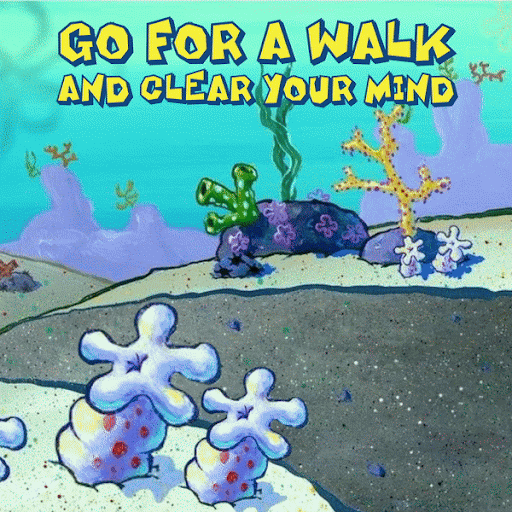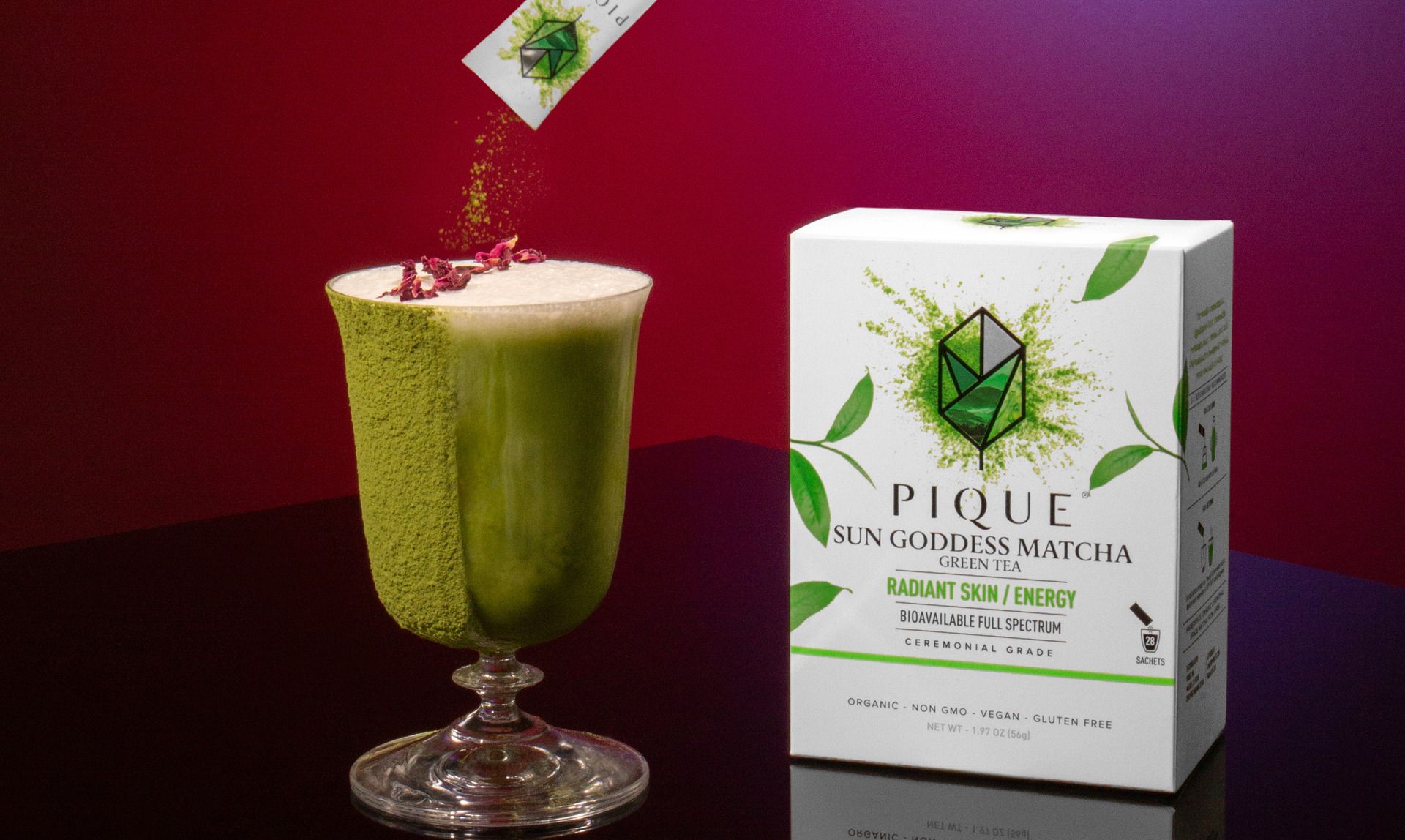- Chill The Duck Out
- Posts
- Sometimes the best walk is the one you don't count.
Sometimes the best walk is the one you don't count.
The research-backed case for moving your body without turning it into homework.
🦆 CHILL THE DUCK OUT
Volume 032: Sometimes the best walk is the one you don't count.
💭 Cold Open
We're finally coming out of the too-hot-to-be-outside season here on the coast. You know that feeling, where stepping outside feels like opening an oven, where the dogs take three steps off the porch and immediately give you a look that says "absolutely not," where any walk longer than a quick bathroom break feels like a personal attack from the sun.
My dogs have been deprived. For months, our "walks" consisted of a sprint to the nearest patch of grass, quick business, and an immediate retreat back to the air conditioning. They were patient about it. They didn't complain (much). But their routine was gone, and honestly, so was mine.
Now that fall has finally arrived with its perfect crisp air and reasonable temperatures, I'm trying to make it up to them. Twice-a-day walks have become our thing again. Mid-morning walks for a little break, mid-afternoon walks to help ward off the afternoon lull.
And somewhere between feeling guilty about the summer deprivation and just enjoying not melting in the humidity, I realized that I forgot how good just walking is.
Not walking for fitness. Not walking to hit a step goal or optimize my recovery metrics. Just... walking. Because the weather is nice, because the dogs are thrilled, because moving my body outside without turning it into a performance review feels surprisingly good.
The dogs don't care about pace or distance. They're just happy to sniff things and exist outside in temperatures that don't require tactical planning. And somewhere between the first block and whenever we loop back home, something shifts in me too.

My brain stops running through my to-do list. My shoulders drop about three inches from wherever they've been living near my ears. I notice things, like that one house that also already has Christmas decorations up, a neighbor planted something new, the way the light filters through the trees differently now that fall's here.
I'm not solving world problems on these walks. I'm not having profound revelations about the meaning of life. I'm just walking, breathing, watching my dog lose his mind over a leaf blowing across the street. It's simple. It's kind of boring in the best way. It's exactly what I needed to add back into my routine.
In a world where everything gets measured, tracked, and optimized, there's something quietly radical about just doing a thing because it feels good. Not because it counts toward a goal. Not because your watch told you to. Just because the weather is perfect, your dogs are happy, and moving your body shouldn't always come with a performance review attached.
So this week, we're talking about the underrated art of just walking. Not power walking, not speed walking, not "getting your steps in.” Just regular, aimless, unoptimized walking. Because sometimes the best thing you can do for your wellbeing is the simplest thing, done for no reason other than it feels right.
🧠 The Science Bit
Let's dig into why walking without tracking it or turning it into a fitness achievement is actually really good for your brain, backed by people who study this stuff instead of just obsessively checking their step count.
Walking is secretly a mental health superpower.
Research consistently shows that walking, especially at a moderate, self-selected pace, reduces symptoms of anxiety and depression, improves mood, and enhances overall psychological wellbeing. But the interesting part is that studies by Dr. Kelly McGonigal show that when people walk with fitness goals (tracking steps, hitting targets, measuring performance), they report less stress relief and enjoyment than people who walk for pleasure without specific goals. When you stop measuring the walk, it becomes more restorative rather than just another task to complete.
Dr. Shane O'Mara did some research that demonstrates that regular walking increases blood flow to the brain, enhances memory and cognitive function, and literally grows your hippocampus, which is the part involved in memory and emotion regulation. You don't need to hit 10,000 steps or maintain a specific pace to get these benefits. Your brain just likes it when you move.
The "soft fascination" of walking clears your mental clutter.
Drs. Rachel and Stephen Kaplan's Attention Restoration Theory explains why walking is so mentally refreshing. They identified something called "soft fascination" where your attention is gently captured by things like trees, clouds, or your dogs investigating every smell, giving your focused attention a break. Studies show that even 20 minutes of walking in a natural setting significantly improves attention, reduces mental fatigue, and enhances creative problem-solving. The key is that it's engaging enough to capture your attention without requiring effort.
Walking without your phone actually matters.
Research on "smartphone separation anxiety" shows that just having your phone with you reduces your available cognitive capacity. Studies by Dr. Adrian Ward's demonstrate that your brain is using resources to resist checking your phone, which means you're not fully present. When you leave your phone at home during a walk, you're giving your brain back the mental resources it was using to manage your relationship with a device.
Movement helps your body and nervous system reset.
Research on active recovery shows that gentle movement like walking helps clear metabolic waste from muscles and reduces soreness faster than complete rest. But beyond physical benefits, walking helps your nervous system shift from fight-or-flight to rest-and-digest mode. Your body literally needs to move to complete the stress cycle, and walking is one of the gentlest ways to do it.
TL;DR: Science confirms what your dog already knew: walking is better when you're just sniffing around aimlessly instead of trying to hit some arbitrary step goal.
🍟 This Week’s Happytizer
This week, I want you to take at least one walk with zero optimization, tracking, or performance goals. Just walk. Notice what happens when moving your body isn't homework.
Pick one approach:
The Phone-Free Walk: Leave your phone at home. Pick a safe, familiar route and just walk without the ability to check anything, track anything, or document anything. Notice how differently your brain works when it's not managing your relationship with a device. Aim for at least 15-20 minutes.
The Aimless Wander: Walk without a specific destination or route. Turn whenever it feels right. Stop when something catches your attention. Let the walk be meandering and inefficient. The goal is to walk with no goal, which might feel weird at first and that's okay.
The Notice Walk: Walk at whatever pace feels comfortable and just notice things. Don't try to clear your mind or solve problems. Just observe the houses, trees, sky, how your body feels, what sounds you hear. When your mind wanders to your to-do list (it will), gently bring your attention back to noticing what's around you.
The Dog Energy Walk: If you have a dog, let them set the pace and the agenda. Stop when they stop. Sniff when they sniff (metaphorically). Notice how present they are with every single moment of the walk, and try to borrow some of that energy.
The Twice-Daily Reset: Take two short walks today. One in the morning, one in the afternoon or evening. Five minutes each is fine. No phone, no agenda, just a brief reset where you move your body and look at something other than a screen.
The goal isn't to add walking to your fitness routine (though if that happens, cool). The goal is to experience moving your body without turning it into a performance or a metric. Notice how it feels to walk without measuring, tracking, or optimizing. Notice if anything shifts in your mood, your stress level, or your ability to be present.
🎉 Unsolicited Joy of the Week
While most of us are patting ourselves on the back for walking the dogs twice a day, 81-year-old Judy Benjamin decided that wasn't quite ambitious enough and decided to walk 3,000 miles from San Diego to St. Augustine, Florida. Not just for the exercise. She was diagnosed with Alzheimer's at 67, reversed her symptoms through lifestyle changes (including lots of walking), and is now proving that age really is just a number and walking is basically a superpower.
🚶♀️ Follow Judy's journey at KTSM or on TikTok @judywalksamerica
💬 Tell me about your walking practice
Do you walk for exercise, for thinking, for nothing in particular? Do you track it, or just do it?
If this made you feel 1% more okay with moving without measuring, share this with a friend... or I'll start following you on your walks with a clipboard tracking your steps and posture, which will be uncomfortable for both of us.
🍵 For the coffee drinkers looking for a gentler energy boost...
If you're a coffee person but find yourself getting jittery or crashing halfway through your morning walk, Pique's Sun Goddess Matcha might be worth trying. Unlike coffee that spikes and crashes your energy, matcha provides sustained focus and calm alertness. Perfect for those walks where you actually want to be present instead of mentally racing through your to-do list.
Stay Calm, Energized & Radiant This Season
The holiday rush is here—don’t just survive it, glow through it. Start every day with Pique’s Sun Goddess Matcha, the ultimate ritual for calm focus, sustained energy, and radiant skin. Unlike coffee, which spikes and crashes your energy, this matcha keeps you steady, alert, and glowing from within. Crafted by Japanese tea masters in Kagoshima, it’s ceremonial-grade, organic, and shaded longer for higher L-theanine and chlorophyll—meaning more calm, more clarity, and a daily dose of antioxidants that support skin, detox, and immunity.
This isn’t just a drink—it’s your secret to thriving through the season. And now’s the perfect time to stock up or gift it. For a limited time, get up to 20% off for life + free gifts.
✨ Elevate your ritual. Energize your glow.
🫶 Duckin’ Done
That's Volume 032.
Here's to walks with no purpose, movement without metrics, and remembering that sometimes the best thing you can optimize is nothing at all.
Until next time: breathe deep, take a walk, and chill the duck out.
Jason
🔬 Behind the Curtain
Walking's mental health benefits are well-documented, with Kelly McGonigal's research showing pleasure-based walking reduces stress more than goal-oriented exercise. Shane O'Mara's work demonstrates walking's cognitive benefits including enhanced memory and hippocampal growth. Rachel and Stephen Kaplan's Attention Restoration Theory explains how "soft fascination" during walks restores mental energy. Adrian Ward's smartphone research reveals how device presence reduces cognitive capacity, while walking meditation studies show stress reduction benefits comparable to traditional meditation.

